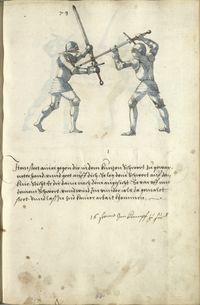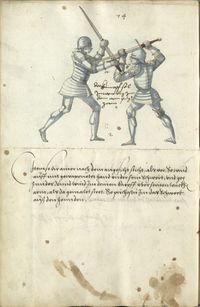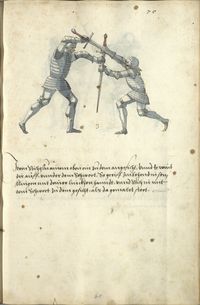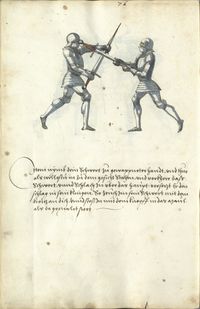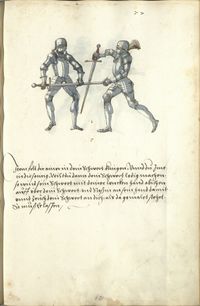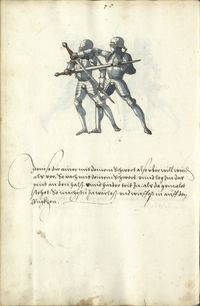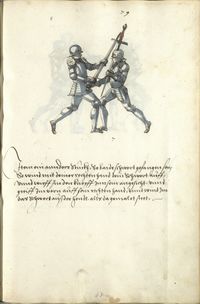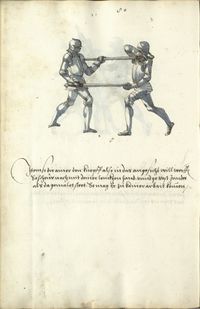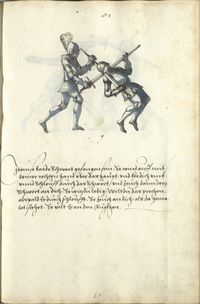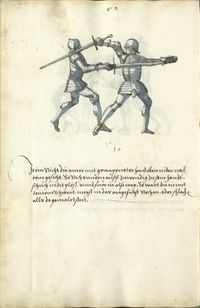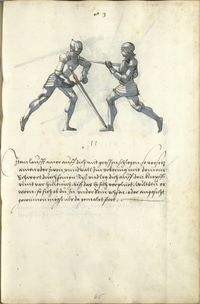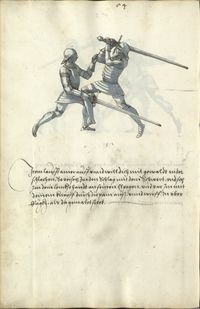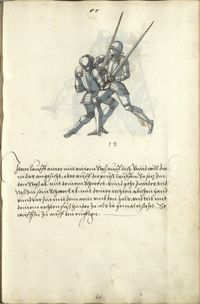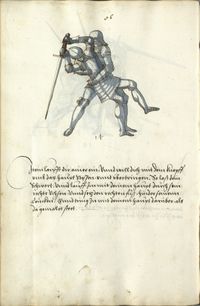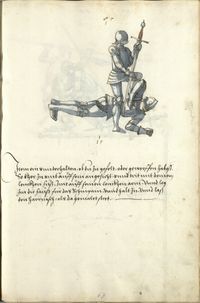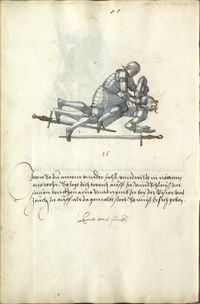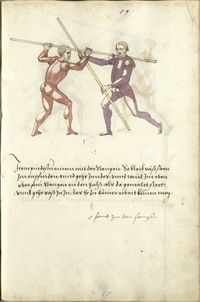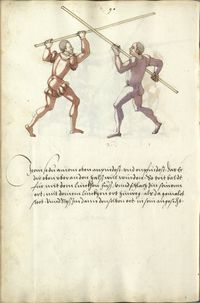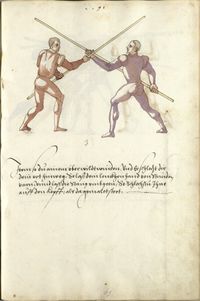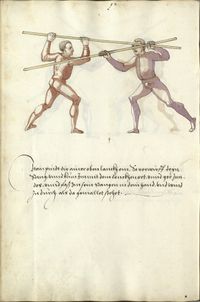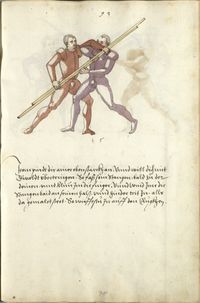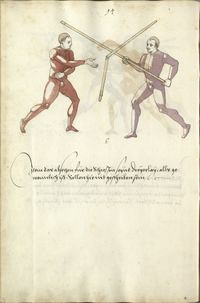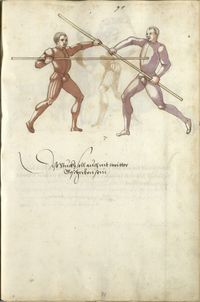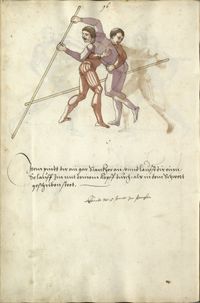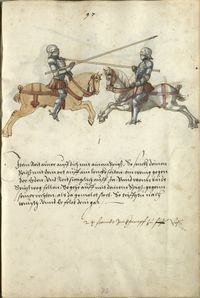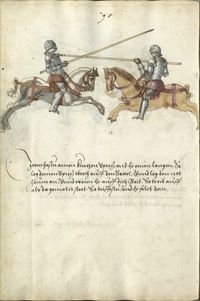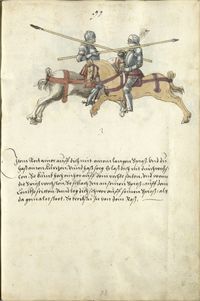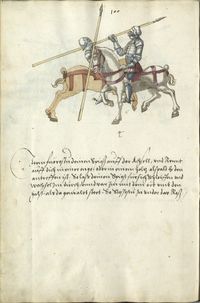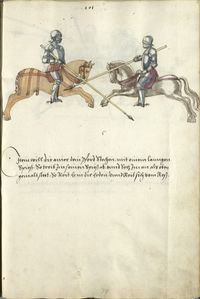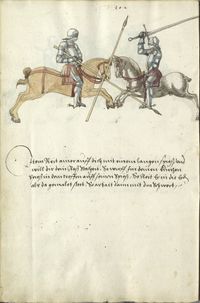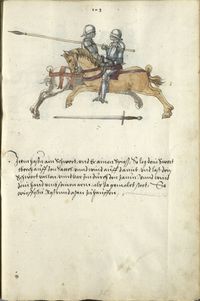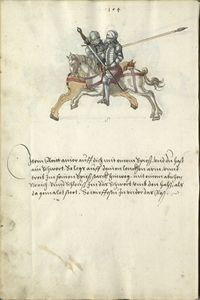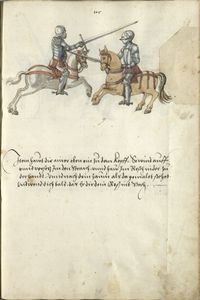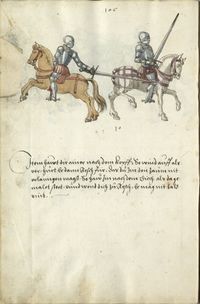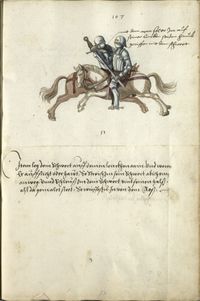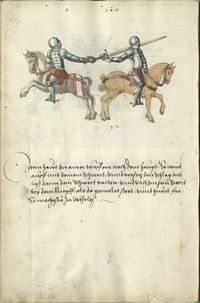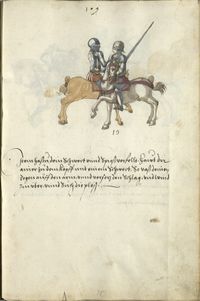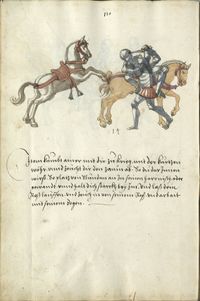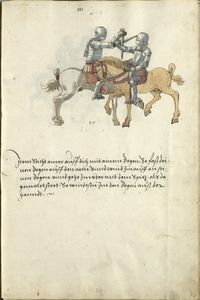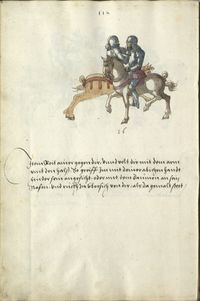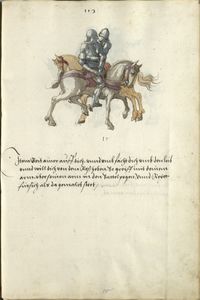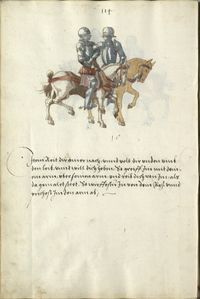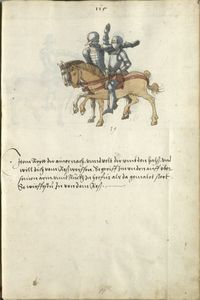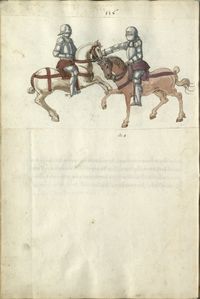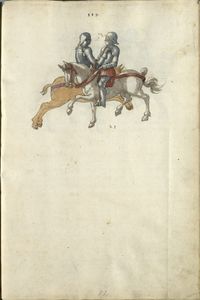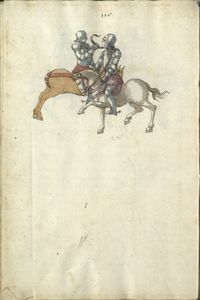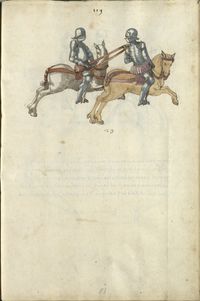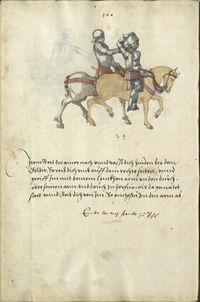|
|
You are not currently logged in. Are you accessing the unsecure (http) portal? Click here to switch to the secure portal. |
Difference between revisions of "Antonius Rast"
| Line 12: | Line 12: | ||
| deathplace = Augsburg, Germany (?) | | deathplace = Augsburg, Germany (?) | ||
| resting_place = | | resting_place = | ||
| − | | occupation = {{plainlist | [[Fencing master]]{{#set:occupation=Fencing master}} | [[occupation::Sword polisher]] }} | + | | occupation = {{plainlist |
| + | | [[Fencing master]]{{#set:occupation=Fencing master}} | ||
| + | | [[occupation::Sword polisher]] | ||
| + | }} | ||
| language = [[language::Early New High German]] | | language = [[language::Early New High German]] | ||
| nationality = | | nationality = | ||
| Line 36: | Line 39: | ||
| children = | | children = | ||
| relatives = | | relatives = | ||
| − | | influences = {{plainlist | [[Johannes Liechtenauer]] | [[Nuremberg group]] }} | + | | influences = {{plainlist |
| + | | [[Johannes Liechtenauer]] | ||
| + | | [[Nuremberg group]] | ||
| + | }} | ||
| influenced = [[Paulus Hector Mair]] | | influenced = [[Paulus Hector Mair]] | ||
| awards = | | awards = | ||
| Line 52: | Line 58: | ||
{{master begin | {{master begin | ||
| − | | title = [[ | + | | title = [[Short Sword]] |
| width = 76em | | width = 76em | ||
}} | }} | ||
Revision as of 19:43, 5 October 2015
| Antonius Rast | |
|---|---|
| x220px | |
| Born | ca. 1470s Nuremberg, Germany (?) |
| Died | 1549 Augsburg, Germany (?) |
| Occupation |
|
| Movement | Marxbrüder |
| Influences | |
| Influenced | Paulus Hector Mair |
| Genres | Fencing manual |
| Language | Early New High German |
| Archetype(s) | Currently lost (1540s) |
| Manuscript(s) | Reichsstadt "Schätze" Nr. 82 (1553) |
Antonius Rast (ca. 1470s - 1549) was a 16th century German fencing master and Captain of the Marxbrüder fencing guild from 1522 to 1523. Paulus Hector Mair is the primary source of information about his life, noting that Rast was a professional sword polisher as well as a certified 'Master of the Long Sword'. He began work on a fencing manual later in his life, but didn't complete it before his death in 1549; Mair purchased the manuscript in 1552 and created a completed version in 1553.
Other than Mair's notes, there are no certain records of Rast's life. The chronicle of the Marxbrüder guild found in the Codex I.6.2º.5 mentions that an 'Anthoni Resch' was made Captain in 1522, and includes an 'Anthoni Rasch' in a list of Masters of the Long Sword in 1534. Both of these are presumed to be references to Rast, as they correspond well with Mair's account and texts from this time period have frequent misspellings, but this is by no means certain.
Rast's writings are consistent with the complex of manuals known as the Nuremberg Group, but since Paulus Hector Mair had access to the Codex Wallerstein when finishing Rast's treatise, it's difficult to make any statements about the nature of Rast's own teachings.
Contents
Treatise
Images |
| |
|---|---|---|
| [57r] | ||
| [57v] | ||
| [58r] | ||
| [58v] | ||
| [59r] | ||
| [59v] | ||
| [60r] | ||
| [60v] | ||
| [61r] | ||
| [61v] | ||
| [62r] | ||
| [62v] | ||
| [63r] | ||
| [63v] | ||
| [64r] | ||
| [64v] |
Images |
||
|---|---|---|
| [65r] 89 Item pindestu ainem mit der stangen. so bleib väst steen Im enpfinden. vnnd gehe Inndes. vnnd wind Im oben vber sein stangen an den halß. als da gemalet steet. vnnd gehe vast In jn. das Er zu kainer arbait komen mag | ||
| [65v] 90 Item so du ainem oben anpindest. vnd enpfindest. das Er dir oben vber an den halß will winden. so trit baldt für mit dem linckhen fuß. vnnd schlach jm seinenn ort. mit deinem linckhen ort hinweg. als da gemalet steet. vnnd stoß Im dann denselben ort in sein angesicht. | ||
| [66r] 91 Item so du ainem vber wildt winden. vnd Er schlecht dir dein ort hinweg. so laß dein lenckhen hand von st[un]d[a(n)][1] varn. vnnd laß die stang vmb geen. so schlechstu Ihne auff den Kopff. als da gemalet steet. | ||
| [66v] 92 Item pindt dir ainer oben lanckh ein. so verwirff deyn stang. vnnd kum Im mit dem lenckhen ort. vnnd gee Inn. des. vnnd faß jm sein stangen in dein hand. vnd wind Jn durch. als da gemallet stehet. | ||
| [67r] 93 Item pindt dir ainer oben starckh an. vnnd will dich mit Gwaldt vbertringen. so faß sein stangen. bald zu der deinen. vnnd klim Im die finger. vnnd wind Ime die stangen baid an seinen halß. wind hinder trit In. alls da gemalet steet. so wirffestu In auff den Ruckhen. | ||
| [67v] 94 Item das abseczen fur die schiessen seynd dreyerlay. alls ge: wounlich ist. sollen hie nit geschriben sein | ||
| [68r] Diß stuckh solt auch nit weitter Geschriben sein[2] | ||
| [68v] Item pindt dir ein gar starckher an. vnnd laufft dir einn so lauff Im mit deinem kopff durch. als in dem schwert geschriben steet. ~
[barely legible] Enndt der 8 stennd jm stenglin |
Images |
||
|---|---|---|
| [69r] | ||
| [69v] | ||
| [70r] | ||
| [70v] | ||
| [71r] | ||
| [71v] | ||
| [72r] | ||
| [72v] | ||
| [73r] | ||
| [73v] | ||
| [74r] | ||
| [74v] | ||
| [75r] | ||
| [75v] | ||
| [76r] | ||
| [76v] | ||
| [77r] | ||
| [77v] | ||
| [78r] | ||
| [78v] | ||
| [79r] | ||
| [79v] | ||
| [80r] | ||
| [80v] |
For further information, including transcription and translation notes, see the discussion page.
| Work | Author(s) | Source | License |
|---|---|---|---|
| Images | Stadtarchiv Augsburg | WikiMedia Commons | |
| Translation | |||
| Transcription | Werner Ueberschär | Index:Rast Fechtbuch (Reichsstadt "Schätze" Nr. 82) |

